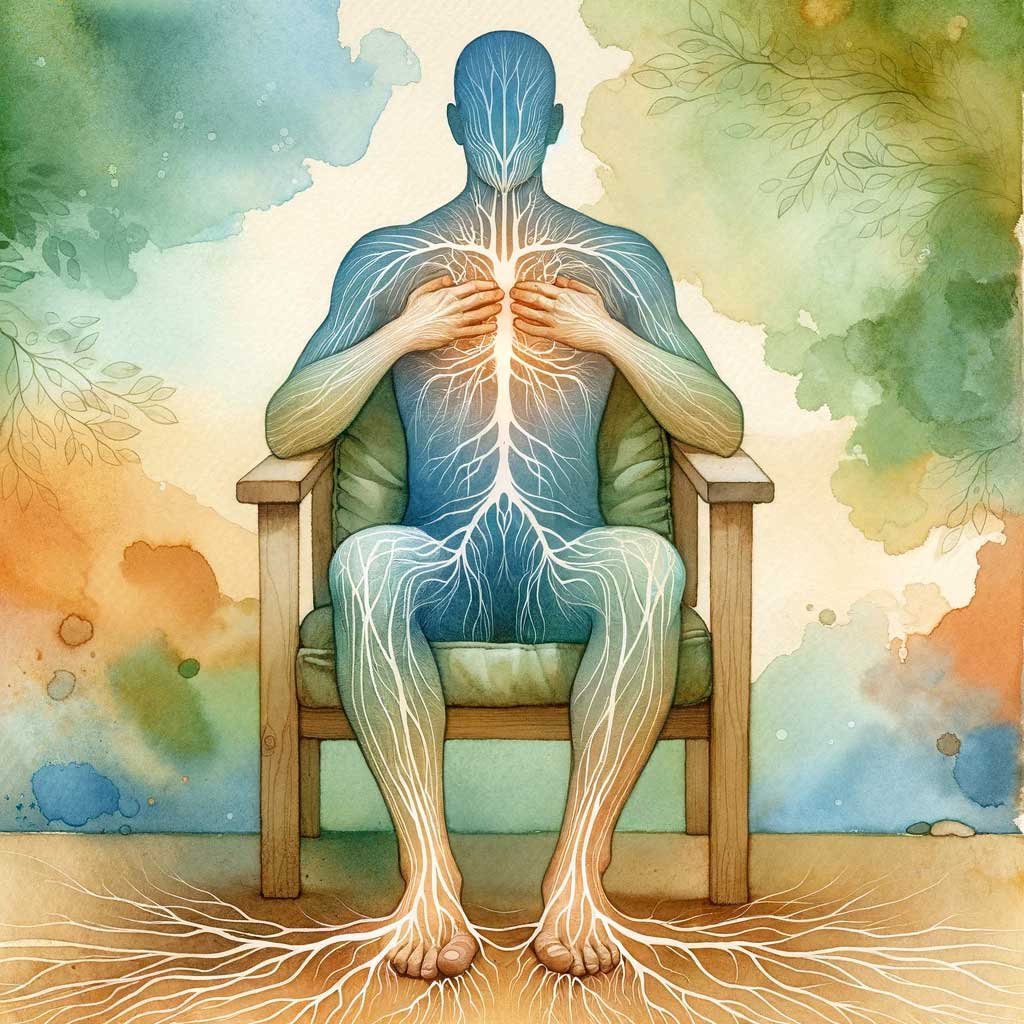INTEGRATIVE MINDFUL-SOMATIC PSYCHOTHERAPY
The body always leads us home…if you can simply learn to trust sensation and stay with it long enough for it to reveal appropriate action, movement, insight, or feeling.
-Pat Ogden, Ph.D., creator of Sensorimotor Psychotherapy
Somatic psychotherapy explores the body-mind connection. Unlike traditional talk therapy, which focuses primarily on our thoughts and narratives about lived experience, somatic psychotherapy is a “bottom-up” approach that emphasizes the direct experience of feelings and sensations in the body.
Mindfulness means bringing focused awareness to the present moment experience without judgment, clinging, or pushing anything away. It involves paying attention to our thoughts, feelings, body sensations, and environment from a non-reactive perspective that fosters clarity, insight, acceptance, and compassion.
Integrative mindful-somatic psychotherapy is a holistic and growth-oriented approach that combines traditional mindfulness practice with somatic interventions to promote emotional resilience, trauma resolution, increased connection, and psycho-spiritual development. By bringing mindful awareness to what is happening in the body, we can shine a light on hidden aspects of ourselves and begin to re-organize the intricate web of sensations, emotions, memories, and impulses that shape our responses to the world.
WHAT TO EXPECT
A Safe and Supportive Relationship: First and foremost, psychotherapy is about providing a safe and nonjudgmental space for you to share and connect. I welcome the intersections of who you are and the complexities of your lived experience. I bring a deep sensitivity to issues of complex trauma, grief and loss, social justice, spiritual emergence, and LGBTQ+ mental health.
Education and Tools: Early in the therapy process, I’ll help you understand how chronic stress and trauma may be affecting your nervous system. Drawing on the fields of interpersonal neurobiology and polyvagal theory, I’ll help you develop tools for emotion regulation and bringing the nervous system into balance.
Developing Awareness and Presence: An essential part of our work together is about cultivating your innate capacity for mindful awareness and presence. Through guided practices such as mindfulness meditation, the body scan, and breath awareness, you'll learn to observe your thoughts, feelings, body sensations, and impulses from a place of curiosity and compassion rather than judgment or problem solving.
Embodied Practices for Deepened Connection: Our sessions will incorporate a variety of somatic and mindfulness-based practices that support connection with your body and environment. Our main therapeutic tool is the reflective practice of mindful inquiry, a gentle and guided investigation of the moment-to-moment unfolding of your experience. Mindful inquiry helps us become more aware of underlying patterns of thought and behavior that may be operating behind the scenes (implicitly and unconsciously) most of the time. Sessions may also include light movement and stretching, guided imagery, and parts work—facilitating a dialogue with different facets of your psyche to foster a sense of self-understanding and integration.
Incorporation of Nature and Spirituality: Our sessions may extend beyond the scope of traditional talk therapy to include experiences that draw upon our interconnection with nature and spirituality. This could include ecotherapy sessions held outdoors; meditations that foster a deeper connection to the earth; nature-based visualization; calling on your allies, guides, and ancestors; and exploring how spiritual or transpersonal experiences relate to your personal development. This approach is tailored to those who resonate with the transformative potential of integrating their spiritual and ecological consciousness into the therapeutic journey.
Cultivating Emotional and Somatic Intelligence: Psycho-spiritual growth is a process. Patience and perseverance are key. Developing the skills to move beyond habitual thinking patterns and into a more embodied way of being takes time. However, as you grow more accustomed to these practices, you may start to notice a profound shift. You'll gain increased access to your emotions and body sensations, learning to navigate them without being overwhelmed. This process not only enhances your emotional resilience but also deepens your connection to yourself and the world.
Therapeutic Feedback and Adjustment: An integral part of our work together involves continuous dialogue about your experience of the therapy process. I encourage open feedback on what feels helpful and what doesn’t, allowing us to tailor the therapeutic approach to better suit your needs.
A major focus of mindful-somatic psychotherapy is helping the client develop internal resources to reconnect with their body and emotions in a safe and grounded way, fostering greater self-acceptance and capacity for authentic connection with others.
PROFESSIONAL TRAINING
As a licensed psychotherapist with more than 10 years of clinical experience, I am dedicated to providing ethical, trauma-sensitive, and culturally responsive care for my clients. Please see the Education and License Info page for more information about my graduate education and professional license. Highlights from my post-graduate training in mindful-somatic therapies include:
Sensorimotor Psychotherapy Level 1 for Trauma Themes with the Sensorimotor Psychotherapy Institute (2022)
60-Hour Certificate in Integrative Somatic Trauma Therapy with the Embody Lab (2022)
Mindfulness-Based Stress Reduction Teacher Training Intensive with the UCSD Center for Mindfulness (2018)
I also integrate my training in related modalities including:
Acceptance & Commitment Therapy • Buddhist Psychology • Ecotherapy • Emotionally Focused Therapy • Gestalt Therapy • Hakomi Mindful-Somatic Therapy • Internal Family Systems • Non-Violent Communication • Restorative Justice • Somatic Attachment Therapy
ADDITIONAL RESOURCES
If you are interested in learning more about mindful-somatic approaches to overcoming trauma and developing resilience, I recommend watching this 26-minute video called Polyvagal Theory Made Simple by Deb Dana, LCSW. You’re also invited to check out my free audio guided meditations.


